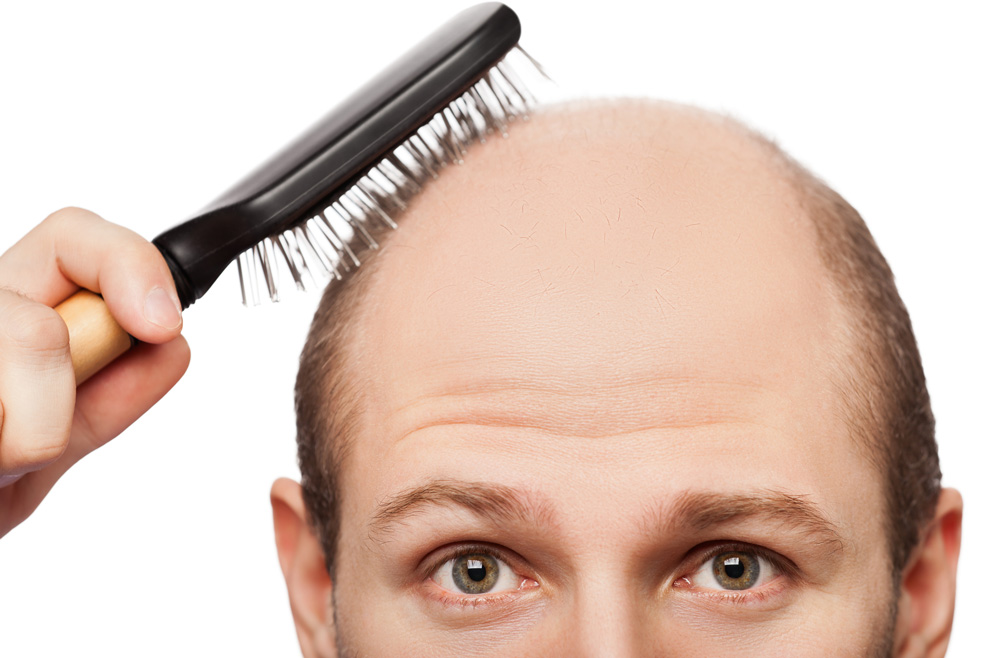1
If you’re experiencing hair loss, don’t worry – there are plenty of solutions available to you. In this blog post, we will discuss 10 different methods that have been proven to be effective in combating hair loss. We’ll also provide information on where you can find these treatments and how much they cost. So if you’re looking for a way to regrow your hair, read on!
1. Minoxidil: Minoxidil is a medication that can be applied topically to the scalp, where it works by stimulating hair follicles and promoting regrowth. It has been approved for use in both men and women who are experiencing hair loss due to various causes, such as genetic baldness. Most commonly sold as Rogaine, you can find Minoxidil in many drug stores and online retailers.
2. Finasteride: Finasteride is a prescription medication that works by blocking the conversion of testosterone into dihydrotestosterone (DHT), which is linked to hair loss. It’s most commonly used to treat male pattern baldness, but can also be used to treat female hair loss. Finasteride is available in pill form and is generally taken once daily.
3. Platelet Rich Plasma Therapy (PRP): PRP therapy is a relatively new treatment that utilizes an individual’s own platelets to stimulate cell regeneration and promote hair growth. This procedure involves taking a sample of your blood, separating the platelets from other cells, and then injecting them into the scalp. Although PRP therapy is still being studied for its effectiveness in hair loss treatment, early results have been promising.

4. Laser Hair Growth Treatments: Low-level laser light therapy (LLLT) has been used to treat hair loss since the 1990s. During this procedure, a device is used to emit low levels of laser light onto the scalp, which is thought to stimulate cell regeneration and promote hair regrowth. Although studies are still ongoing, results have been promising for those experiencing both male and female pattern baldness.
5. Hair Supplements: Hair supplement can be a great way to give your hair the essential nutrients it needs for growth. Hair supplements contain vitamins, minerals and other natural ingredients that may help promote healthy hair growth. There are many different types of supplements available, so make sure to do your research before choosing one that’s right for you.

6. Herbal Treatments: Certain herbs and natural supplements have been used to treat hair loss for centuries. Saw palmetto, green tea extract, pumpkin seed oil, and rosemary oil are some of the most popular herbal remedies. These remedies may not be as effective as other treatments but they can help slow down the progression of hair loss.
7. Diet and Exercise: Eating a healthy, balanced diet and getting regular exercise can help promote hair growth. Make sure to include plenty of foods that contain essential vitamins and minerals, such as iron, zinc, biotin, and vitamin B12. Additionally, make sure you’re getting enough protein in your diet – amino acids are key components for strong hair growth.
8. Scalp Massages: Regular scalp massages can help stimulate circulation in the area and promote hair growth. You can do this yourself or ask a professional to give you a specialized massage using essential oils that are known to be beneficial for hair health.

9. Avoid Smoking and Drinking Alcohol: Smoking has been linked to numerous health issues, including hair loss. Alcohol has a similar effect on the body, which is why it’s important to limit your intake of both of these substances if you’re trying to regrow your hair.
10. Stress Management: Stress can be a major factor in hair loss, so it’s important to find ways to reduce the amount of stress in your life. Practicing mindfulness, getting enough sleep, and having a regular exercise routine can all help to reduce stress levels and promote healthy hair growth.
These are some of the most common treatments for hair loss. Check out Regrowz UK for products and treatment packages that suit your needs. However, it’s important to speak with your doctor before trying any of these remedies as they may not be right for everyone. Additionally, it’s important to remember that hair loss can be a sign of an underlying medical condition, so getting checked out by a doctor is always the safest option. With the right combination of treatments and lifestyle changes, you can help restore your hair back to its full glory!
Good luck on your journey to fuller and healthier hair!

